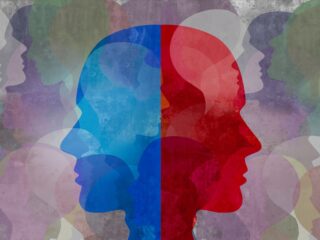There’s much more to drug and alcohol treatment than a one-size-fits-all approach. Everyone’s addiction is different and trying to help everyone with the same therapies and techniques won’t cut it. As the stigma behind addiction weakens, more money has gone into treatment programs which have led to more specialization. You can find several types of treatment including programs intended for those who can’t seem to stay sober.
One of the most necessary types of treatment is our chronic relapse program. When addicts relapse they normally don’t ease back into it and end up worse than they ever were. This terrible cycle or recovery and relapse usually ends in the hospital, a jail cell, or a cemetery.
All drug and alcohol treatment is critical but a chronic relapse program could be needed to save a life. Let’s learn about our chronic relapse program including who its best suited for and how our programs can help finally put addicts and alcoholics on a path to long-term sobriety.
What is Relapse?
Relapse is when an alcoholic or addict returns to their drug of choice after an extended period of sobriety. The time between use doesn’t matter. Whether you begin using again after 30 days of sobriety or start drinking again after 30 years – it’s relapse.
What is Considered Chronic Relapse?
Relapse is considered a side-effect of getting sober by some and the ultimate enemy by others. Many people will relapse once or twice, even after inpatient or direct treatment. It’s not uncommon for a person to try out more than one rehab facility or different methods if their sobriety just isn’t ‘sticking.’ While relapse is common, continuous and chronic relapse is a grave cause for concern.
There is no set definition for ‘chronic’ relapse, though many treatment professionals would argue more than two relapses is chronic. If you’ve relapsed more than twice you should strongly consider a chronic relapse treatment program.
What is a Chronic Relapse Program?
A chronic relapse program is a drug and alcohol rehabilitation and treatment program focused on sufferers who have a difficult time sticking with sobriety. As stated above, it’s normal for most people to relapse once or even a third time, but chronic relapse is not normal and can create several issues that need to be addressed in a specialized space.
Types of Chronic Relapse Therapies and Treatments
There are a few different chronic relapse programs that we offer but all will target your relapse history and look for new solutions.
Short-Term Inpatient Therapy
Short-term inpatient therapy generally consists of a 28-day treatment period. If a patient has chronic relapse problems, they may be counseled on techniques to avoid relapse more directly or spend more time in one-on-one therapies on impulse control and relapse prevention. For chronic relapses short-term treatment, even inpatient, may not be enough.
Long-Term Inpatient Therapy
Long-term inpatient therapy is recommended for those have chronic relapse problems. You can think of long-term inpatient therapy as a chronic relapse program itself and you wouldn’t be far off. Long-term therapy generally lasts between a couple months to a year, depending on the patient. Long-term inpatient therapy gives addiction counselors and therapists much more time with each patient. The extra days in long-term provide time to recover, stabilize, and help craft the perfect chronic relapse program.
Intense Outpatient Therapy
Intense outpatient therapy (IOP) is one of the most direct and focused forms of treatment outside an inpatient facility. IOP may meet eight hours daily or twice a week dependent on the program. There are many types of IOP including ones focused on chronic relapse and relapse prevention. You can start with intense courses during early sobriety and stair-step down as you learn and progress.
Sober Homes
Sober homes aren’t directly part of our chronic relapse program but are highly recommended after any significant block of detox or initial treatment. Sober homes provide a stepping stone between early sobriety and the real world that addicts and alcoholics can use to ease back into their life. Long-term sobriety rates increase significantly when the patient moves into a sober home after treatment.
Focusing on Other Issues
If someone is chronically relapsing, our doctors and treatment professionals will look to other factors that could be causing relapse. These factors could be psychological, financial, or someone may be putting up with too much stress to devote themselves to sobriety. Treatment professionals will delve into the factors leading up to the relapse, what the person was thinking, and ways to avoid similar issues moving forward.
In many cases, addiction is addiction. There doesn’t have to be a past traumatic experience involved or a dysfunctional family for addiction to happen. When you treat the addiction, the rest of the issues will fall into place. In other cases, a trauma, negative thought patterns, and other psychological could genuinely drive an addiction. Only skilled treatment professionals will be able to connect the dots.
One of the most important parts of our chronic relapse program is peeling back all the layers to help find what’s causing a continual relapse. This may take hours with a counselor and could take some serious soul-searching. Once the cause(s) or patterns are isolated, proven techniques like cognitive-behavioral therapy can be used to change perspectives and increase success.
Relapse can make an addict feel hopeless but there is a path to end to all addictions. If you or a loved one is having continued issues with relapse you need to look to a specialized program like our chronic relapse program. The deadly cycle of addiction and relapse only gets worse with every new cycle, but you can end it by using professional treatment.







